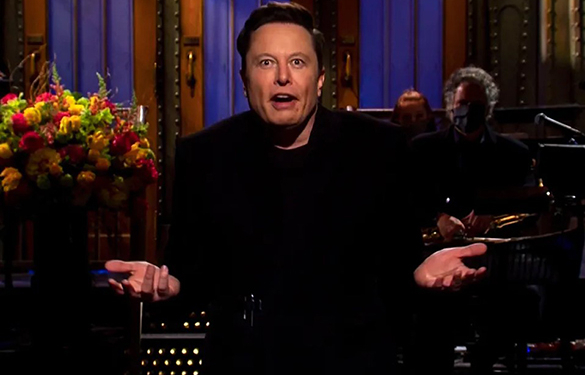There are so many government regulations placed on businesses that it’s like “a million little strings that tie Gulliver down” and eventually he “can’t move,” said billionaire entrepreneur Elon Musk in an interview with Cato Senior Fellow Johan Norberg. At the governmental level, he added, there needs to be a “regulation removal department.”
Musk, who runs Tesla, SpaceX, X (formerly Twitter), and several other companies, made his remarks at the Buenos Aires conference, “The Rebirth of Liberty in Argentina and Beyond,” which was sponsored by the Cato Institute and Libertad y Progreso. The event’s main speaker was Argentine President Javier Milei.
In the interview with libertarian author and filmmaker Norberg, Musk was asked about the risk-averse culture that regulations create and how entrepreneurs can innovate and grow given those roadblocks. Musk replied that the long period of prosperity following World War II has, ironically, contributed to the problem.
“When things have been prosperous for a long time, you get an accumulation of laws and regulations, naturally,” said Musk. “And these laws and regulations are immortal whereas humans are obviously mortal. So, the longer you have this generation of – this creation by rules and regulations, you sort of get to the point where each law or regulation is not perhaps crippling in and of itself but they’re all like little strings, like a million little strings that tie Gulliver down. So, each little string – eventually the giant can’t move.”
The “regulatory gridlock” in Western societies is so stifling that it effectively makes big projects seem illegal, nearly impossible to get off the ground or complete. As an example, Musk cited a high-speed rail venture in California. “They spent $7 billion dollars and there’s a 1,600-foot section. That’s all they have to show for it. It doesn’t even have rails on it.”
“It’s really too absurd for parody,” said Musk. “Because large projects are essentially illegal in California, and in much of Europe and other countries. There has to be some garbage-collection process for removing rules and regulations in order for society to function and not to get hardening of the arteries to the point where you can’t do anything.”
Norberg then noted that in the classical liberal tradition it is a given that “we don’t know everything – nobody does,” and therefore it takes trial and error, a discovery processs, to find out what works and what doesn’t. And this is risky and costly but necessary. Unfortunately, a risk-averse culture dominates “in many businesses and certainly in government,” said Norberg. “Many are so conservative they wouldn’t let anyone do anything for the first time.”
“So the question is, how do you deal with that kind of risk-averse culture?” Norberg asked Musk. “What changes in culture and regulation would you make to make the world safe for experiments?”
Musk replied, “At a government level I think there should be a regulation removal department. And probably some, when we’re passing laws, they should have some kind of sunset perhaps. … I think what tends to happen is that once regulations are passed, an ecosystem of consultants forms around those regulations that wants to keep them going. Environmental regulations are particularly bad in this regard.”
Since assuming office in December 2023, President Milei has slashed government spending up to 30 percent, fired more than 25,000 federal workers, reduced federal agencies, frozen public works projects, lowered a major import tariff, maintained budget surpluses every month, reduced monthly inflation to 4.2 percent (August 2024) from 25 percent (December 2023), and is pushing for currency competition among the peso, US dollar, and other currencies.
Musk added that there should be no fear in deleting government departments and regulations because “you can always put them back.”
“You can always put them back,” he repeated, “and really this is like taking the brakes off an economy and our civilization. We need to snap those strings that are holding Gulliver down and preventing us from making progress as a civilization.”
To see the entire interview, click here.
































Discussion about this post